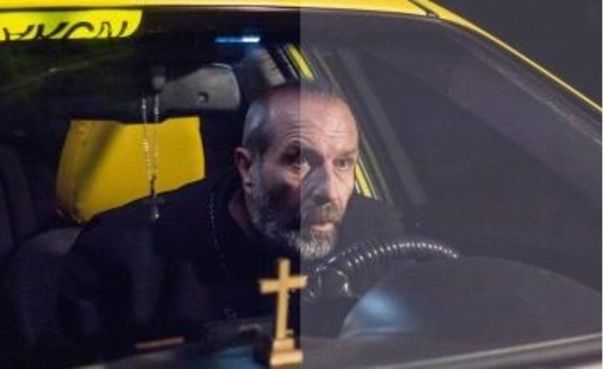Review: DIRECTIONS / POSOKI
By Mónika Bajnóczi

Even though DIRECTIONS / POSOKI (2017) takes place in the specific world of Bulgarian cab drivers, it offers a broader picture on Europe’s present-day situation with regard to the ongoing refugee crisis, governmental and economical issues with a bit of black humor while still maintaining this sense of collectively feeling sorry for ourselves.
European cinema has provided a lot of films that address these issues and this years’ edition of the Sarajevo Film Festival showcases a handful of them. Having watched a fair amount of the different sections, regional filmmakers’ current reflections on the reality surrounding us sometimes seem rather concerning. After GRAIN / BUĞDAY’s biological modification caused dystopia HOSTAGES / MDZEVLEBI’s suicide terrorists, DIRECTIONS has proven to be the comical highlight of Sarajevo’s Feature Film Competition for me. For his fourth feature, Bulgarian director Stephan Komandarev has chosen to follow five taxi drivers for a night in Sofia and explore the inner conflicts of his homeland by their encounters. Through the movie, he manages to have a strong social sensitivity all the while keeping his sense of absurd humor, and moulds them together with refreshingly confident cinematic language. After having its world premiere in Cannes' Un Certain Regard section, DIRECTIONS is now competing for the Heart of Sarajevo.
Komandarev sets the tone with a disturbing opening sequence in which a blackmailed cabby shoots a banker and then tries to commit suicide. As if the story alone was not intense enough, it is mainly composed of close-ups (which makes sense considering the limited space in a cab) and shot in a few long takes. The lack of wide shots and montage-provided distance makes us more a participant than an observer. This technique reaches its full potential in the climax of the first scene: there is no way to get out of this opening shot unaffected and, being fairly aware of it, Komandarev builds all the rest of the movie on the aftershock.
The shooting creates a chain reaction and previously buried emotions come to the surface in every sequence. It provokes a nationwide debate about corruption and morals which feeds from the repressed anger of a society feeling overlooked. Everybody feels like now is their time to finally speak up. Throughout the movie, there is a great deal of audio of people calling into the radio and giving their point of view on the shooting – and basically on everything that bugs them. The opinions range from sympathy with the poor taxi driver to blaming everything on the refugees and claiming that Bulgaria is the center of the universe.
The cinematography is similar to reality TV, as the use of hand-held camera results in jittery, sometimes unfocused frames. The shooting and editing techniques of the opening are continuously used in the follow-up scenes, therefore we can easily feel almost as if we are sitting in the taxi too. Without even noticing, the audience gets psychologically involved in the depicted situations, but it does not stop here. The greatest achievement of this movie is that it does not take itself and its topic too seriously. Almost every scene contains a couple of hilarious moments which help to ease the pressure.
For the episodical structure Jim Jarmusch's NIGHT ON EARTH (1991) and Jafar Panahi's TAXI / TAXI TEHRAN (2015) are obvious inspirations, but alongside the familiar formulas, Komandarev has added to the mix problems that are typical not only for the country but also for the region, which makes DIRECTIONS an unmistakable example of today's Eastern European cinema. While it is a Bulgarian movie, on a lot of instances the mentioned problems are universal for the whole region. Issues, such as doctors moving abroad in hope of better payment, the despising of refugees, being jobless even with remarkable education, come up in the news and everyday conversations. In an era when governments are busy building the highest walls possible, Komandarev really makes an effort to highlight our similarities and the issues we are all dealing with.
The movie’s final conclusion is that Bulgaria needs a new heart to restore its society's faith in their future, and I dearly hope they will get it – if only figuratively – here in Sarajevo.

